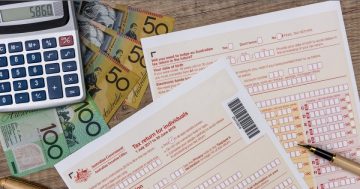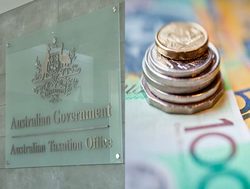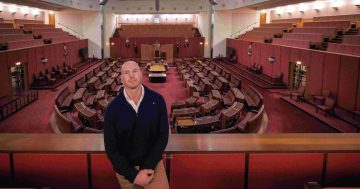Nassim Khadem* says one of the major delays at tax time involves lodgements that are made before all income information is available.
 As 14 million Australians begin pulling together their records for tax time, the Australian Taxation Office (ATO) is advising people to wait until the end of July before lodging returns.
As 14 million Australians begin pulling together their records for tax time, the Australian Taxation Office (ATO) is advising people to wait until the end of July before lodging returns.
Assistant Commissioner, Karen Foat said one of the major causes of delay at tax time was that each year one-in-five people lodged before they had all of the information about their income.
“Every year there are hundreds of thousands of returns that we either have to delay or send a bill for [later on] because they [taxpayers] left out some income,” Ms Foat said.
She urged people to check that their employer had finalised the information in their income statement and it was marked as ‘tax ready’ before they lodge.
“Other information from banks, health funds and Government Agencies will also be automatically inserted into your tax return,” she said.
“For most people this will happen by the end of July.”
The ATO also has a new method which will allow people to claim 80c per hour for all their running expenses, rather than needing to calculate costs for specific expenses.
The change will apply from 1 March to 30 June, and will likely be extended as the ATO is currently reviewing the arrangements for the next financial year as the COVID-19 situation progresses.
Ms Foat indicated it was likely the scheme would be extended, saying there would be an official announcement before 30 June.
“As long as the Government direction is that people should work from home if they can, then we will be offering this shortcut method,” she said.
Taxpayers still have the choice to use the old method, known as the 52c per work hour method, to calculate the work-related portion of specific items such as phone and internet expenses.
However, under the 52c method, taxpayers will need to apportion their use between what is personal and what is work-related, and they must do so on “a reasonable basis”.
Tax advisers have warned people to carefully consider whether they should opt for the 80c method as, while it is simpler and involves less record keeping, it may result in lower deductions.
Ms Foat said there were many myths circulating this year.
A common question the ATO was being asked as more people work from home due to COVID-19 restrictions was whether they could now classify their home as their ‘office’ and count travel to the office.
“People think if they work from home most of the time and need to go to office occasionally they can claim the home-to-work trip,” she said.
“In fact your home is still your private residence and so you can’t claim home-to-work travel.”
Australians were also asking if they could claim items such as children’s education expenses, as well as tea, coffee and toilet paper which used to be supplied by employers in the office.
“Again, the answer is ‘no’”, Ms Foat said.
The ATO would also be watching for over-claiming, particularly if claims in one area go up but are not logically offset in another.
“For example, if we see a big work-from-home claim and the laundry claim looks the same, the question we will ask is: ‘If you’re working from home are you really wearing your uniform?’,” she said.
Work-related travel was once again another area of focus.
“Almost everyone’s work-related travel has gone down — we are doing things a lot more virtually these days,” Ms Foat said.
She noted that there may be some people who had just moved into a job where travel was high during first three quarters of the year.
“If your claims look really high compared to other people in the same income level and same occupation, and perhaps even in the same location, we might start to ask questions about that,” Ms Foat warned.
The major reason the ATO knocked out claims was that people did not keep a receipt or some sort of evidence that backed their claim.
While certain work-related expense claims under $300 did not require receipts, Ms Foat said: “You still need to be able to tell us what it was for and how much they cost.”
“When it comes to work-related car travel, you still need to show us how you came to work out the number of kilometres you are claiming,” she said.
“We often find people saying it’s a work trip they do every day, five-days-a-week, 52 weeks a year, but forgot to take out the four weeks of holidays.”
*Nassim Khadem reports on business news across online, radio and television for the ABC. She tweets @NassimKhadem.
This article first appeared on the ABC News website.











